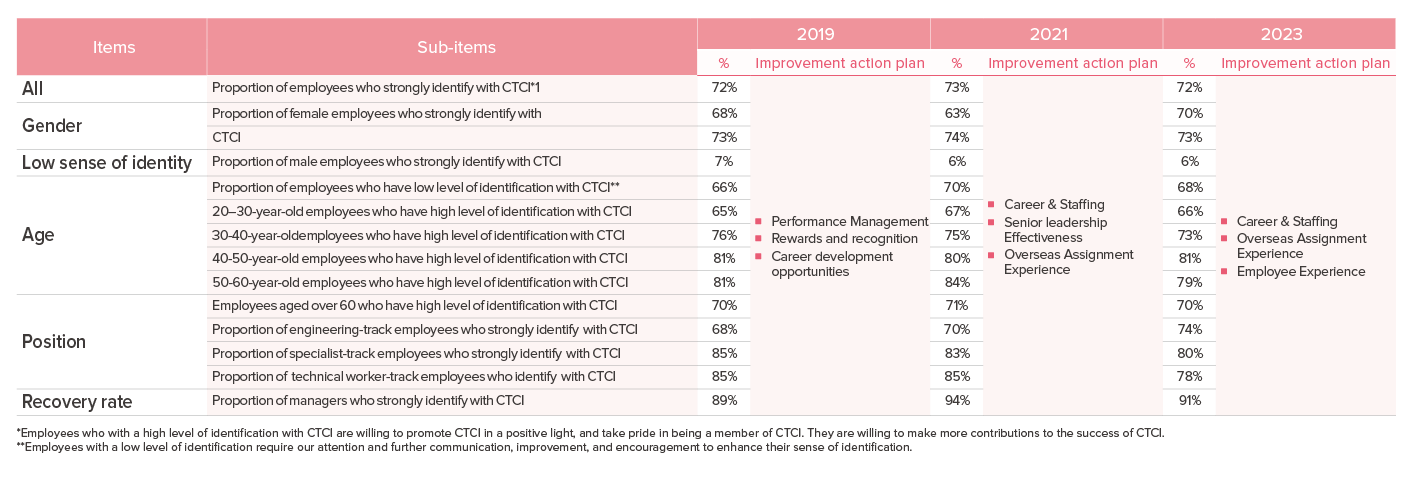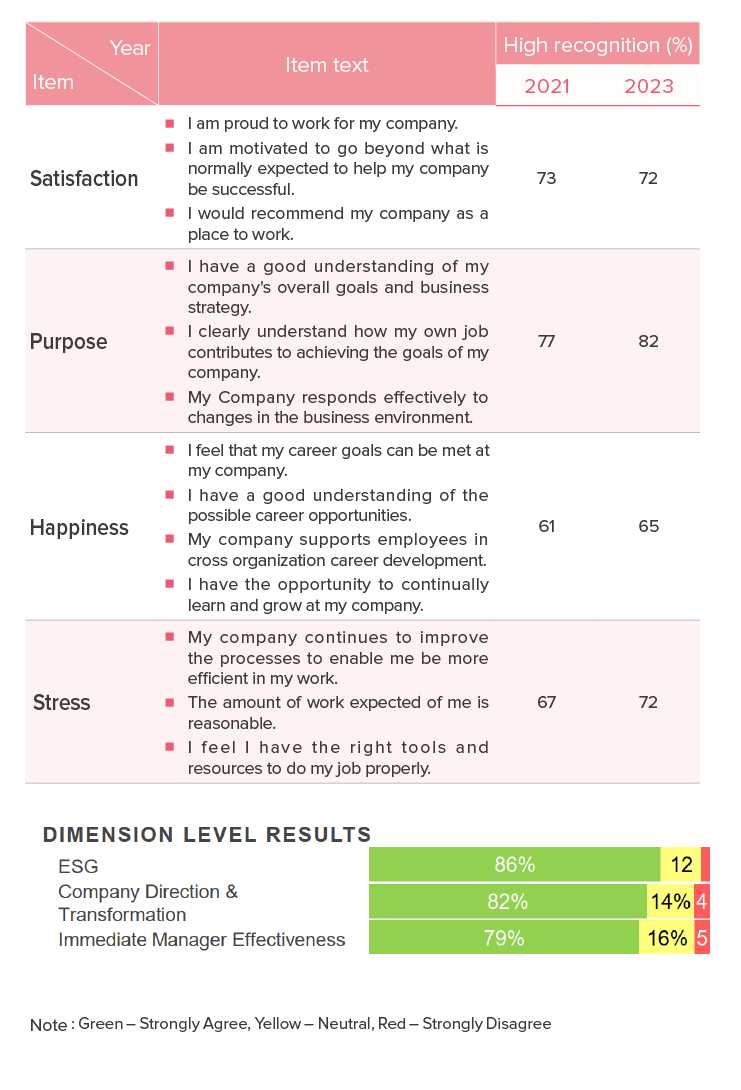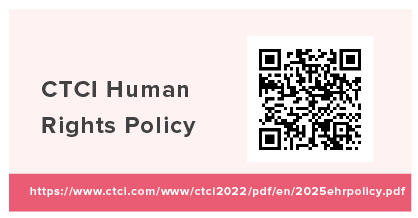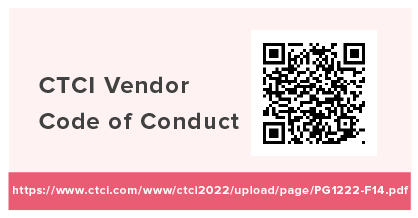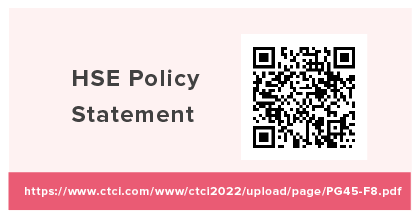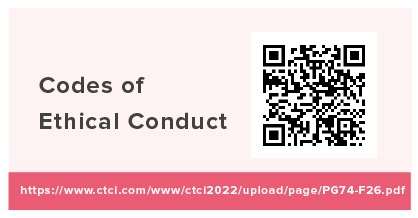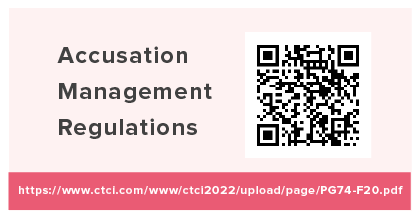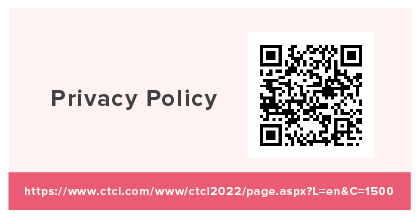Talent Development

Labor Rights and Human Rights
♦HR Impact Management Framework
Human Rights Management
CTCI's Human Rights Policy follows the UN Global Compact, the Universal Declaration of Human Rights, the UN Framework and Guiding Principles on Business and Human Rights, and the Ruggie Framework. CTCI Codes of Ethical Conduct clearly prohibits any form of discrimination or exclusion based on gender, race, religious belief, political inclination, sexual orientation, seniority, nationality and age, as well as conducts of sexual harassment, violence and threats at the workplace. To meet our commitment on building a workplace free from harassment and discrimination and to prevent sexual harassment at the workplace, CTCI has not only stipulated relevant regulations and procedures in our Employee Handbook, but also intensified advocacy for new employees. In addition, an employee feedback mailbox is provided (HR@ctci.com.tw) to facilitate communication through email, and a dedicated unit was set up to respond and handle relevant issues. To effectively control whistle blow reports received and maintain a smooth and impartial investigation process, an inter-departmental team of members approved by the Reward and Penalty Review Board will be in charge of investigating the content of the complaints and submitting the investigation report. Primary human rights issues concerned with CTCI cover the operation process (employees and contractors) and the procurement stage (suppliers). We evaluate human rights issues and stakeholders that pose as risks every year through management processes such as human rights issue identification, affected stakeholders, due diligence and complaint channels, and then formulate risk mitigation measures and compensation systems. In 2024, human rights issues with potential risks are working hours, safety, and health. Compared with 2023, the risk value increased from 25.46% to 26.56%, mainly due to the impact of overtime and health check tracking issues. CTCI Health Center has established a systematic health management model by conducting surveys on overwork scale and workload/pattern, and conducting statistical analysis on health examination results. We hope to achieve comprehensive health management while preventing occupational diseases and actively promoting employee health. For human rights management related to suppliers and contractors, please refer to the sections on “Sustainable Supply Chain Management” and “Safe and Healthy Work Environment.” We will continue to strengthen human rights advocacy among our partner vendors to enhance the protection of human rights.
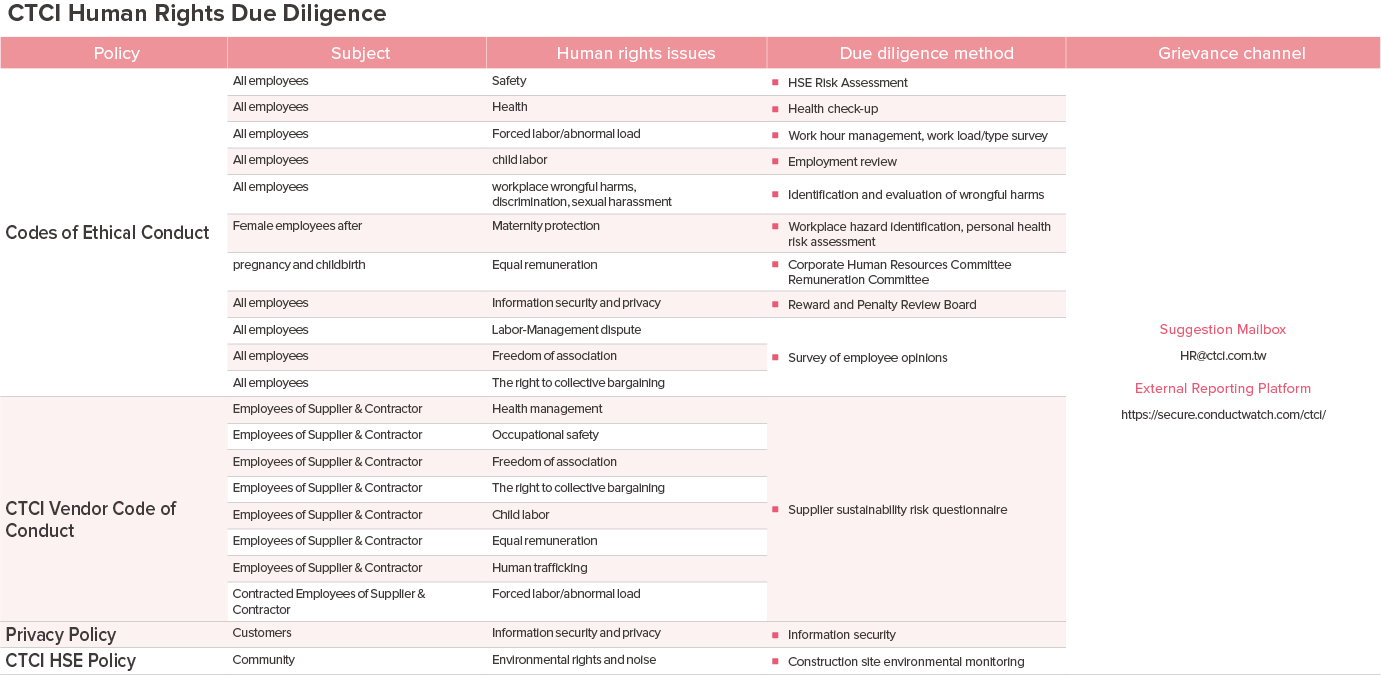
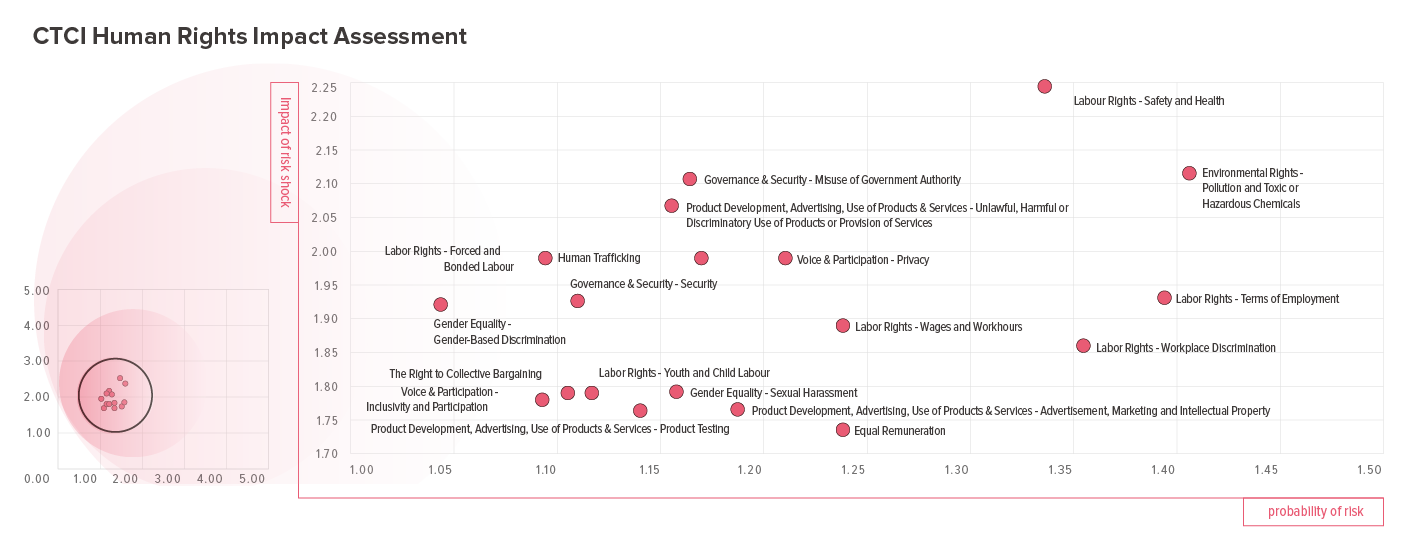
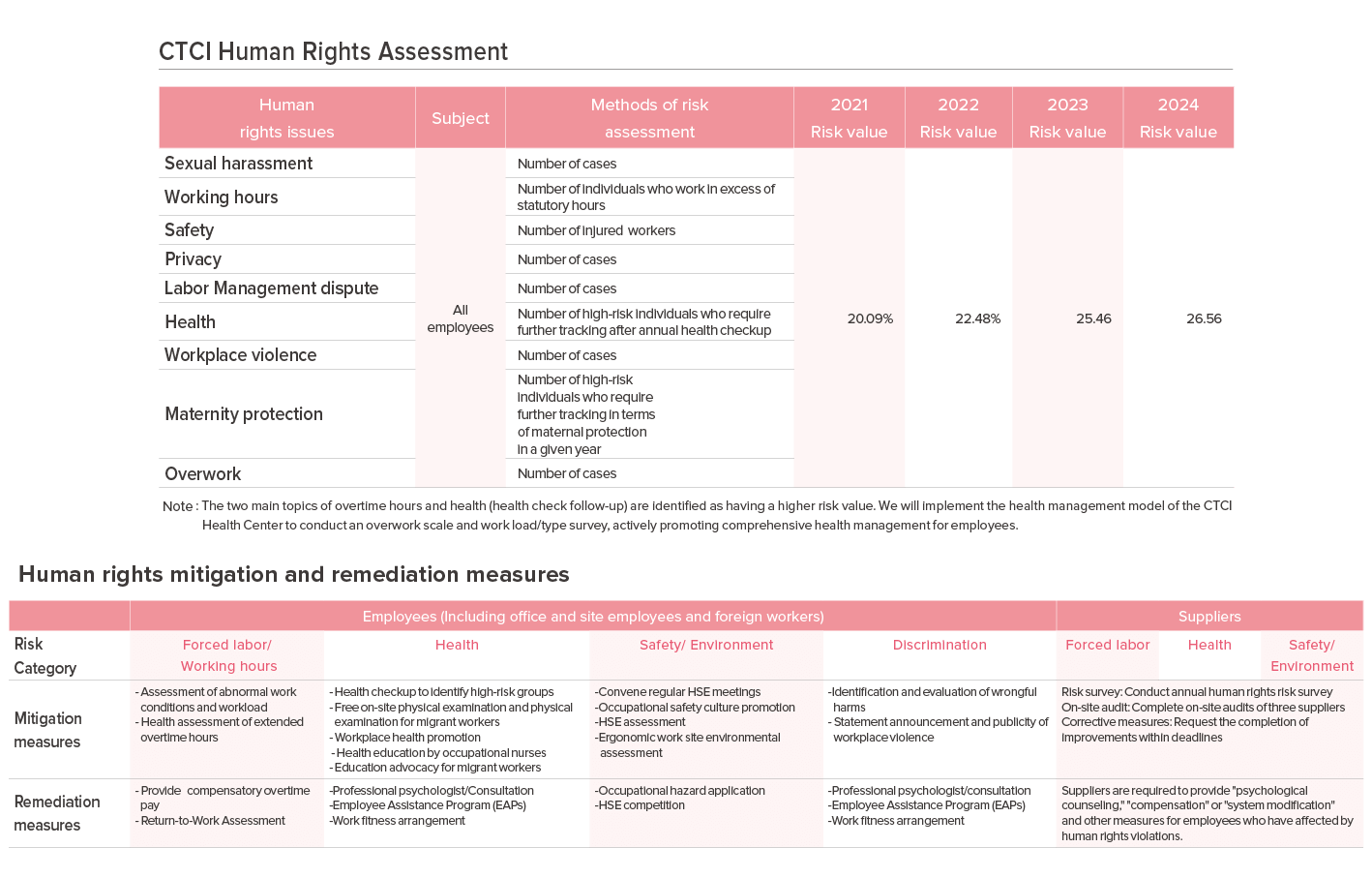
Sexual Harassment
CTCI has established a dedicated hotline for handling sexual harassment grievances and has formed a "Sexual Harassment Complaint Handling Committee." The committee is chaired by the Head of Human Resources, with seven additional members appointed by the Head of the Executive Management Office, ensuring that at least half of the committee members are women. In the event of sexual harassment or suspected cases, the committee initiates an investigation in accordance with confidentiality principles and presents the results within three months. Disciplinary actions are implemented upon approval by the Chairman. In 2024, a reported sexual harassment case was filed through the employee suggestion mailbox and was processed in accordance with the established procedure. Follow-up Improvement Measures: In September 2024, CTCI University launched two mandatory online courses aimed at preventing sexual harassment for all employees, including a version for general employees and a version for supervisors. The employee-focused course educates employees on the definition of sexual harassment, how to respond when encountering sexual harassment, and how to access the Company's internal grievance channels. The supervisor-focused course outlines the procedures to follow when subordinates report incidents, as well as the ongoing responsibilities of supervisors in preventing harassment. To further protect all employees from unlawful physical or psychological harm in the workplace, CTCI issued a “Workplace Anti-Harassment Declaration” in March 2025. The declaration affirms the Company’s zero-tolerance policy toward any unlawful conduct by management or among employees. It also explicitly prohibits harassment from clients, contractors, or strangers within the work environment.
Employee Communication
CTCI values two-way communication with its colleagues, establishing diverse channels to create an open, transparent, and trustworthy work environment. These communication mechanisms include labor-relations conference, employee suggestion program, survey for internal service satisfaction, lunch seminar with new employees, senior executive employee seminar, and employee engagement surveys, ensuring that issues are heard and addressed to continuously improve the workplace.
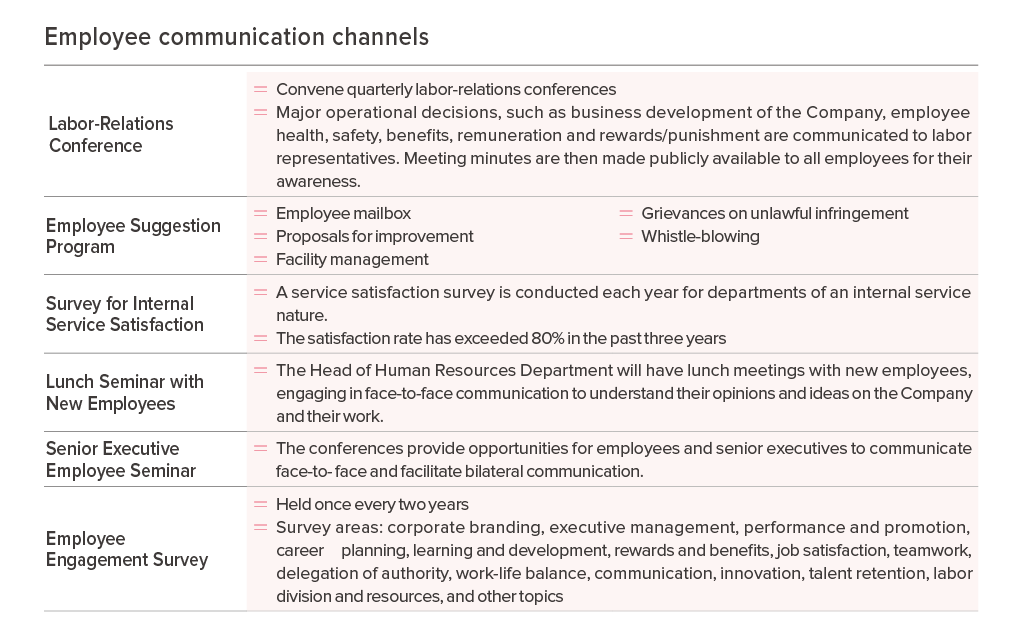
Employee Engagement Survey
CTCI conducts a global employee engagement survey every two years, covering topics such as corporate strategy, transformation, leadership effectiveness of executive and direct supervisors, rewards and performance, career development, international assignment experience, integrity, and diversity. The survey uses a five-point scale to gauge employee alignment, enabling precise analysis and actionable insights. The survey results indicate that the proportion of employees who "strongly agree" increased from 48% in 2016 to 72% in 2019, reached 73% in 2021, and maintained at 72% in 2023. This indicates that more than 70% of employees are highly aligned with the Company’s direction and motivated to support its growth. Meanwhile, the proportion of employees with “low alignment” dropped significantly, from 21% in 2016 to just 6% in 2023, reflecting the effectiveness of CTCI’s communication and improvement efforts. In 2023, employees expressed high levels of agreement on ESG initiatives, corporate transformation, and departmental leadership. However, areas such as career development, overseas assignment experiences, and overall employee experience were identified for further enhancement. In the future, CTCI will continue to enhance overall employee engagement and corporate cohesion through system optimization and communication with employees. In 2022, regarding "Career and Talent Planning," we conducted turnover analysis and salary structure reviews, leading to adjustments in entry-level salaries. We also developed a one-way employment model for overseas assignments and introduced leadership and communication training for senior executives. Based on the 2023 survey results, each business group was tasked with formulating action plans to address areas needing improvement and report progress to senior leadership on a semiannual basis. In terms of satisfaction, in the dimension of engagement, apart from understanding the overall satisfaction of employees with the company, our engagement survey also explores whether employees are motivated to exceed expectations in work and recommend the company to others as a place to work. For Engagement dimension, 72% of respondents selected" strongly agree" or "agree." In terms of Purpose, in the dimension of Company Policy & Transformation, our engagement survey explores whether employees can clearly understand the company's overall goals, objectives and business strategy, and values, and can clearly understand how his/her own job contributes to achieving the goals of the company and other issues. For Company Policy & Transformation dimension, 82% of respondents selected "strongly agree" or "agree." In terms of happiness, in the dimension of Career & Talent Deployment, our engagement survey explores whether employees can achieve individual career goals, have a good understanding of the possible career opportunities, and opportunity to learn and grow at the company continuously. For Career & Talent Deployment dimension, 65% of respondents selected "strongly agree" or "agree." In terms of stress, in the dimension of Work Execution, our engagement survey explores whether employee think that the amount of work expected is reasonable, whether the company continues to improve the processes to enable work efficiency, and have the right tools and resources to do the job properly. For work Execution dimension, 72% of respondents selected "strongly agree" or "agree."
